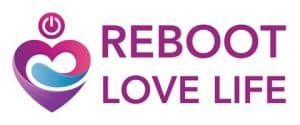People come with a unique set of characteristics, making all sorts of odd combinations for the rest of us. Every person has their own fit – their missing puzzle piece, and many go through different partners to find their “one, true love.”
Partners can be healthy or toxic. They can leave behind trauma and lessons or help you grow into a better person. Some partners may fit into your ideals, and others may straight-off clash. Major traits of a person can help define what category they fall into and the kind of fit they are for you.
Here are 10 common types of partners in a relationship to help you discover more about your partner and the category they fall into:
Different Types Of Partners In Relationships
1. The Perfect One
The name suggests it all – this is the person you’ve needed throughout all these years. The Perfect One isn’t seemingly perfect.
They will still have their flaws and imperfections, but this is the person you will match and be compatible with in the long run.
They are perfect because they fit the best with you, your life, your goals, and your personality. When you meet this partner is highly variable, but it is also an incredibly rare match.
You might only come across such partners once or twice in your life and would almost always seek long-term relationships with them.
They will bring out the best in you, grow with you, and help you shed your inhibitions.
When you date The Perfect One for the long term, you not only learn in-depth about their love language, but you also learn the deeper parts of commitment that come when loving someone truly.
Key Highlight: This is the person you will likely choose to stay with forever if they fall into your life at the right place and the right time.
A relationship with “The Perfect One” is happy and fulfilling.
Pros: It Can heal past emotional trauma from relationships and has the highest probability of a happily-ever-after.
Cons: Difficult to identify (other types can often be considered as “The Perfect One” until later realization) can cause tremendous heartache if unsuccessful.

2. The Lesson
We are all too familiar with the number of people who come into our lives to teach us a lesson.
Most partners you come across will fall under the category of “The Lesson” because their primary role in your life is to teach you something about love, yourself, or the world.
Some people would also consider these ties as “Karmic Relationships”.
The Lesson comes because we know too little about what we want and what we can give. It helps us navigate through our idea of love, romance, and marriage.
The more openly you embrace your relationship with this partner and its end, the quicker you will stop stumbling across this partner category.
However, suppose you choose to turn a blind eye. In that case, you will most likely be stuck in a cycle with different people of this category or end up in a toxic relationship and environment.
Key Highlight: These partners are most common during years of youth or when a person is too naive to be selective about who they date.
“The Lesson” paves the path to better relationships and your “Perfect One”.
Pros: Makes you a better person, helps you mature, and acts as a guide to self-discovery and finding the right partner for you.
Cons: Takes up your time and energy (particularly in terms of emotional investment), can be misleading, and can distract you from the ultimate goal of your relationship.
3. The Insecure Try-Hard
Insecurity is a common human phenomenon, but in some people, insecurities manifest as loud traits and inconveniences.
An insecure partner can either end up putting you down or they end up constantly seeking your validation or pretending to be someone else to be better in your eyes.
The “Insecure Try-Hard” is the latter and more common to come across. The Insecure Try-Hard can quickly exhaust you because they will always feel like they’re not enough.
They are often caught in themselves and more focused on their idea of how you see them.
As a result, your efforts to make them feel loved or show them your true feelings may end up in the bin because they are blinded by their own issues.
Key Highlight: They can turn up being quite the baggage, but some Insecure Try-Hard-ers can also be quieter in their way of functioning. Either way, it can be hard to make a partnership feel 1:1 with them.
Pros: Exercising your empathy, ability to strengthen your connection by helping them come out of it, and self-esteem boost.
If you find yourself to be the complete opposite, they can balance you out and fulfill your attention needs.
Cons: It can drain you out, might take away life outside of your relationship, cause frustrations due to a constantly unhappy partner, and project insecurities upon yourself.

4. The Dream-Come-True
The dream-come-true is your ideal – a manifestation of your thoughts, your dreams, and your fantasies.
When you first see them or meet them, you can pretty quickly start imagining your ever-after and might jump into taking action to get them to like you.
This is the kind of partner you don’t really bother to get to know better because you were highly flattered at first look.
Getting into a relationship with a partner like this can leave you on cloud nine, but only for the first few months.
Your Dream-Come-True might still remain to be your partner, but they won’t be a dream forever.
At the end of the day, any human being is dynamic and ever-changing and will not meet up to your idea of them. And you cannot live in an illusion of a person forever.
Key Highlight: The “Dream-Come-True” is only an ideal because of the projection of your inner romance and your idea of them.
They may seem like the ideal person you’ve always wanted but not the perfect fit for you in reality.
Pros: Experience the epitome of romanticism, finding an escape, and eventually understanding practicality and your true desires.
Cons: It can cause you incredible heartbreak, imposing your ideal image on the person, becoming too paranoid over them changing, and having a hard time accepting the truth.
5. The Gentle Disconnect
The Gentle Disconnect is a simple partner – one that you might not even remember. You date them, but they do not really stand out. You don’t end up experiencing jitters or strong emotions.
As the name suggests, there’s a strange disconnect between the two of you – one you might not even be able to pinpoint.
This partner does not have too much of an impact on you. The fact that you are disconnected does not hurt you in any way because you never experienced a connection in the first place.
It’s just nice to know that they’re just there.
Key Highlight: Might have several of these through casual dating, partners who come and go, do not add much to your life, and hurt the least.
Pros: Great for a break from serious relationships, for self-healing, and for aiding your social life, it helps you gain more confidence in dating.
Cons: It can be a waste of time if stretched for an extended period and is often used as an escape from one’s own emotions.

6. The Masked Identity
The Masked Identity is any partner who puts up a front that does not align with their true identity.
No partner during their initial stages shows up their entire personality and eases into the relationship gradually. While that is a natural process, the Masked Identity often takes on an intentional show.
The purpose behind masking your identity can be due to insecurities, malignant intent, or – really anything.
The worst thing about dating masked identities is that you might or might never find out about it. The former is hurtful, whereas the latter is simply scary.
Key Highlight: Commonly found, they are usually more reserved, hesitant to share simple details, and have inconsistent stories or details about themselves.
Pros: Acts as a learning opportunity can help you get better at catching red flags and identifying partners. I’ve written an in-depth guide on identifying the red flags in a relationship and calling it quits.
Cons: Usually never lasts for too long and can give you severe trust issues in dating.
7. The Dependent
It is as simple as the name suggests – the Dependent is a partner who is heavily (or even mildly) dependent on you.
The Dependent is not highlighted by incapabilities or circumstantial disabilities. It is a person who could take care of themselves or their tasks if they wanted to but are instead bound within their own minds.
Some partners might also be bound due to certain psychological disorders and are not seeking active treatment. Other partners can have it out of habit or due to a specific upbringing.
The most common segment is that of emotionally-dependent people who need you to constantly be there as their partner for their self-esteem and confidence and to feel good about themselves.
Others may just rely too heavily on you to get their tasks done rather than doing it themselves.
Key Highlight: The Dependent is usually clingy because they need you to stay sane or maintain their lifestyle.
They often show their dependencies much later in the relationship when they are confident in your attraction towards them.
Pros: Mild cases of dependencies can help you establish co-dependencies in terms of emotions, finances, or physical tasks. When controlled, it can teach you how to take care of someone with an open heart.
Cons: It can become emotionally draining and a give-only relationship if you do not take a stand, making you feel guilty for not meeting their needs.

8. The Independent
On the opposite end of the dependency sector stands The Independent. This is the type of partner who would refuse any aid, even when they need it.
They have an excessive need for self-reliability to feel worthy and feel guilty and ashamed to ask for help. This often roots in childhood trauma or past relationships.
To have a stable, long-term relationship, you and your partner have to learn to balance your traits and avoid either extremes.
Key Highlight: The Independent is often quite attractive in the initial stages of dating for their empowerment but will need plenty of work to stabilize and balance your relationship later.
Pros: Not having added responsibility, having a responsible partner you can rely on, and learning to let your partner be on their own when needed.
Cons: Can be too busy handling their own life and might prioritize tasks over you. Burnouts are common, which can often make them cranky, bitter, and drained.
9. The Control Freak
The Control Freak is a partner who has to constantly dominate and decide. They simply cannot give up control over their lives, over their relationship, and over you.
Some Control Freaks can grow to be far too toxic – from wanting to decide what you wear to what you eat.
Others can express their desire for control in milder ways, such as planning every little detail for a date, getting upset or angry when things don’t happen as instructed by them, or not being informed about every decision you take.
Key Highlight: Dating a control freak can eventually drive you crazy. However, people with submissive qualities may get along really well with them.
Pros: Do not have to take the lead (if that’s what you need). Extreme cases are still manageable and may keep you disciplined and balanced.
Cons: Usually far too controlling, lack of freedom and individuality, and may end up feeling suffocated eventually.

10. The Passive Investor
The Passive Investor is a genuine lover but isn’t the best at showing it. These partners are happy to be with you, to be giving and caring, and are willing to bet their odds on this relationship.
In short, they’re willing to invest their time, energy, and resources in you. They, well, aren’t active contributors.
They’re willing to do it doesn’t mean that they will on their own. The Passive Investor constantly needs to be pushed or asked to do things.
A Passive Investor just wouldn’t see the need to have to express or show their love all the time. Some Passive Investors also tend to get irked at the idea of gifting, dates, or PDA.
Key Highlight: The Passive Investor loves you, but you have a hard time believing or seeing it.
Dating a Passive Investor is worse during low times and worst for people with low self-esteem or those who look up to acknowledgment.
Pros: Easy-going romance, little investment, low maintenance, keeps relationship stress away for busy people.
Cons: May often feel alone or unloved at times, may feel like you’re the only person putting in the effort, and love needs are not adequately met for most.
Conclusion
It is worth mentioning that this is not an exhaustive list. There are a zillion types you can come up with based on significant traits.
Thus, you most likely will not find yourself or your partner perfectly fit within one block. In fact, you might end up relating a little bit to multiple types.
It’s perfectly natural for diverse people to not fit into boxes. In fact, use this to set up your own categorization to help understand your partner and their needs better.
Or to understand the kind of lover you are – both of which will help you work towards happier relationships.
